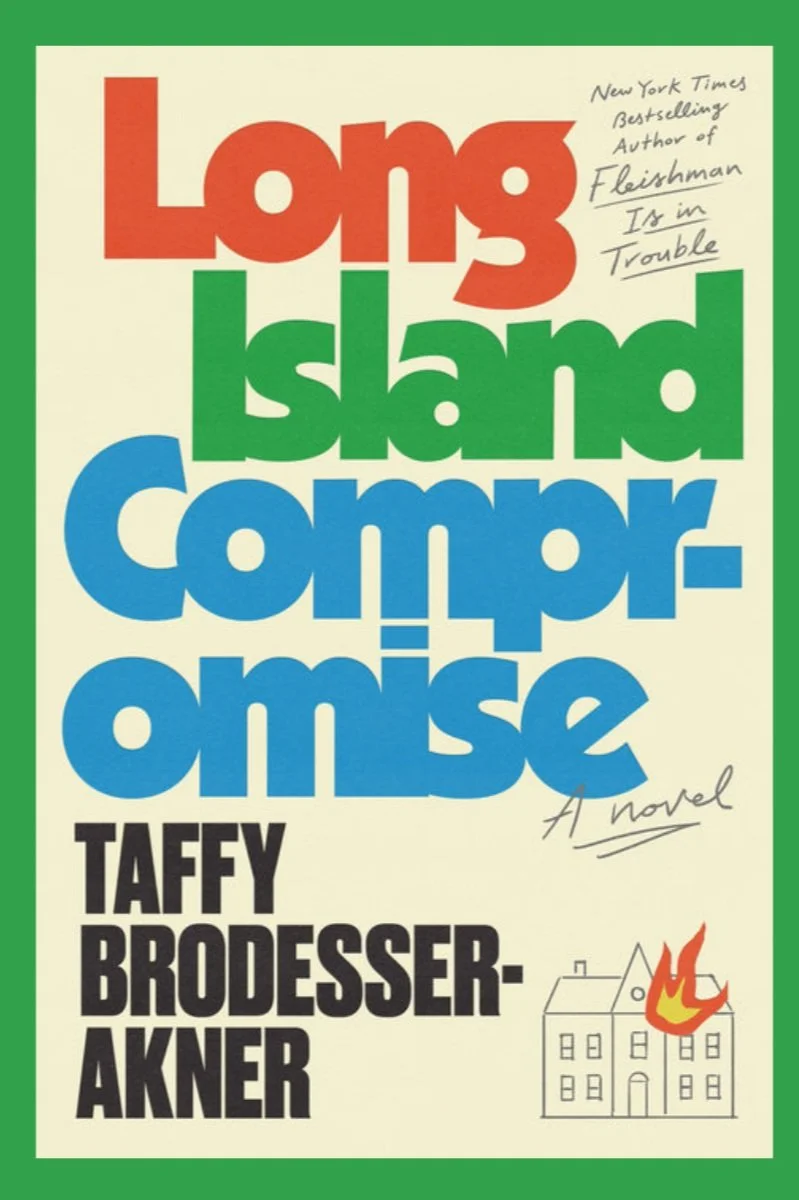Long Island Compromise – Taffy Brodesser-Akner
Everything you need to know about “Long Island Compromise” is in the title. It is essentially a 500-page exploration of the ways in which people can be screwed over by each other, a job and the relentless pursuit of money.
The story begins with the kidnapping of Carl Fletcher in 1980, setting off a chain of events that will have lasting consequences for his family. While the Fletchers — patriarch Carl, matriarch Ruth, and children Beamer, Nathan and Jenny — appear well-adjusted, each is deeply affected by generational trauma.
This trauma, rooted in their family's escape from the Holocaust, was exacerbated by Carl's kidnapping and further fueled by the illusion of security that wealth provided until it ultimately became a source of vulnerability.
Beamer engages in self-destructive behaviors, including sadomasochistic sex and drug abuse — which, as described, will challenge some readers. Despite achieving temporary success in Hollywood with his childhood friend, his inability to overcome his personal demons ultimately leads to his downfall.
Nathan, a neurotic land use lawyer, is secretly facing the threat of losing his job due to a bribery scandal. Meanwhile, his best friend has lost all their money in a Ponzi scheme, leaving the couple financially devastated. Nathan's inability to confront his problems and his wife's ignorance of his financial situation add to the growing tension in their relationship.
Jenny, the youngest sibling, is a perpetual student with a lack of self-awareness who struggles with depression-induced narcolepsy and multiple failed relationships. Despite coming from a privileged background, she becomes involved in labor activism, advocating for unions — even at her father's factory — which creates a rift with her family.
For about half of the novel I wasn’t entirely sure what Brodesser-Akner was trying to achieve, but around the 40 percent mark — after gritting my teeth through the Beamer section – we learn the wealth is dwindling and each adult child needs to confront their own insecurities and neuroses now that the safety net has been removed.
Let’s just say, it’s a lot. Did I like it? Yes. Did I hate it? Also, yes.
What I Liked
The spotlight of Jewish identity and culture. The characters' struggles with their Jewish identity are a central theme of the novel. It highlights subtle nuances and celebrations that will resonate with many readers at a time when they may feel alone.
It was challenging. This is a dark dramedy that will likely be divisive. The author's decision to focus on deeply flawed, selfish and vapid main characters made many sections drag. While it wasn't always enjoyable, the novel provides an interesting study of the devastating impact of untreated mental health issues on individuals and their relationships.
What I Hated
It’s overstuffed. The story feels like it meanders aimlessly, seemingly never reaching a definitive conclusion. The introduction of numerous characters and subplots, while contributing to the rich tapestry of the Fletchers' world, also made the narrative feel scattershot. At its best, it reminded me of Nathan Hill's "The Nix," which explored similar themes but with a more cohesive structure. Despite some callbacks to earlier events and characters, I found myself forgetting details due to the sheer amount of information packed into this novel.
The characters. While I appreciated the multiple perspectives, Beamer's section felt overly extended. It was difficult to determine if the author genuinely liked the people she created or simply wanted to inflict suffering upon them. I wanted more depth from the supporting characters like Noelle, Alyssa and Ruth — even Phyllis. They were experiencing the same events, and hearing from them would have softened the rougher edges of Beamer, Nathan and Jenny.
While I was initially leaning towards a three-star rating, the novel's final third, which includes revelations about Ruth and the ransom money, helped to elevate it. These sections provided a sense of closure and connected the various plot threads in a way that many chapters lacked. However, due to the unlikable characters and situations, this novel won’t be for everyone.
If you decide to tackle “Compromise,” I highly recommend the audiobook narrated by all-star Edoardo Ballerini. His ability to create distinct personas for each character was impressive, often making it difficult to remember that he was the sole narrator. I honestly would have given up on the text during Beamer's section if I had been reading instead of listening, which speaks to the power of Ballerini's performance.
Thank you to Libro.fm, Penguin Random House Audio Publishing Group and the author for a free copy of the audiobook. This exchange of goods did not influence my review.
Rating (story): 4/5 stars
Rating (narration): 4/5 stars
Format: Audiobook (personal library)
Dates read: August 22 – August 30, 2024
Multi-tasking: Okay. The chapters are long, and there are a lot of characters, so it is easy for your mind to wander. I’d recommend only listening during easy activities, like walking, cleaning and bike riding.





